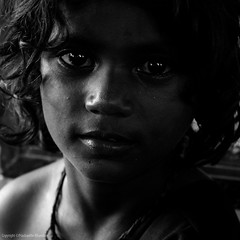I recently commented on a question posted online. The question was, “What are you doing to spread the word about the orphan crisis?”
 It was a contest. The winner would receive a t-shirt meant to help bring awareness to the orphan crisis. That’s not why I commented. My husband is the shop manager of a small screen printing operation. The last thing we need is another t-shirt. Additionally, I don’t even like them. Maybe it’s the designer in me, or my stubborn disdain for the proverbial farmer tan, but I do not like t-shirts. My logic: I won’t win, it’ll be fun to be a part of the conversation, and on the off-chance that I do win, I can give the shirt to my dear husband (who does not share my disdain for the humble t-shirt).
It was a contest. The winner would receive a t-shirt meant to help bring awareness to the orphan crisis. That’s not why I commented. My husband is the shop manager of a small screen printing operation. The last thing we need is another t-shirt. Additionally, I don’t even like them. Maybe it’s the designer in me, or my stubborn disdain for the proverbial farmer tan, but I do not like t-shirts. My logic: I won’t win, it’ll be fun to be a part of the conversation, and on the off-chance that I do win, I can give the shirt to my dear husband (who does not share my disdain for the humble t-shirt).
So, I answered, “I started a business with a high quality adoption life book as its primary product. Contained on the website is a blog that I’m using to spread the word about adoption, encourage parents, etc.”
You guessed it. I won. The next day I received a message: “Valerie Garrett, you won the contest! Send us your address and we’ll send you the t-shirt! Thanks for what you are doing to spread the word about the orphan crisis.” My dear husband is now the proud owner of said t-shirt.
I thought nothing more of it until a follow-up post to the discussion caught my eye. A woman posted, “Where is the orphan crisis…?” Her point: adoption should be a last resort and biological families should be the ones to raise children, including biological extended families; a child with living relatives isn’t truly an orphan. I don’t disagree, but frankly, her post went on and was very assumptive, implying that the folks involved in the discussion hadn’t done due diligence in searching for alternatives for children before considering adoption. A wonderfully complete response by the initial organization that prompted the discussion was given. She responded with an article, the premise of which was that adoption is traumatic and is often undertaken by parents “rescuing” children, and we need to understand the realities in order to avoid “self-righteous humanitarianism” (i.e. – parents who pat themselves on the back for saving a child from the horrors of their birth environment).
 I was so bothered that I wrote the first couple of paragraphs to this post and let it sit for another five days before completing it. Get ready for a long post. I’m here to set the record straight. In fact, this just may be one of those posts that earns me some nasty email. Are these two people (the discussion contributor and the article author) entitled to their opinions? You bet. And so am I. I don’t know if the contributor to the discussion was an adoptive parent. If not, she’s been influenced by a tremendously skewed article, whose author, interestingly, IS an adoptive parent, but who adopted her child out of a situation of great political turmoil.
I was so bothered that I wrote the first couple of paragraphs to this post and let it sit for another five days before completing it. Get ready for a long post. I’m here to set the record straight. In fact, this just may be one of those posts that earns me some nasty email. Are these two people (the discussion contributor and the article author) entitled to their opinions? You bet. And so am I. I don’t know if the contributor to the discussion was an adoptive parent. If not, she’s been influenced by a tremendously skewed article, whose author, interestingly, IS an adoptive parent, but who adopted her child out of a situation of great political turmoil.
First, I do not know any adoptive parent whose motivation to adopt is so that they can pat themselves on the back for rescuing a child. Oh, I’m sure there are some out there, unfortunately, but I don’t know of them, nor do the adoption workers I know. In fact, we’ve heard people say, “Oh, you’ve done such a good thing,” and our response is always that we adopted because we felt called by God to do it. We did it with respect for and delight in our son’s birth country, not to rescue him from it. We did it in reverence, not for kudos. And we’ll do it again for the same reasons we did it the first time.
Second, intercountry adoption is wrought with issues. Each country is different and the sad reality is that human trafficking is bigger today than it has ever been in the past. The skin trade is alive, well, and thriving worldwide. If you think it’s not happening in your own back yard, think again and get involved with organizations like Women at Risk, Intl. What does this have to do with adoption? Well, this is reason one to use a reputable adoption agency that does business in the context of global realities and in compliance with Hague regulations. Adoptions can be done less expensively, but at the expense of your peace of mind and potentially in connection with black market human trafficking. A reputable agency won’t even do adoptions in countries with the kind of turmoil around child welfare that the article author wrote about. In fact, at any hint of child trafficking, a reputable agency will stop all adoptions involving children from that nation. Hear me: this doesn’t mean they stop helping children. They simply stop adoptions. There are myriad other options for helping children in hurting places: child sponsorship is just one that comes to mind – you could be responsible for a child being able to attend school.
Third, I don’t know of anyone in the adoption community who believes adoption is a first option for any child. Adoption may be a first option for the adoptive family. It was for us. We have a heart for adoption. We didn’t try to conceive birth children because we were so strongly led toward adoption. However, we, and the adoption community at large, understand that adoption initially is tremendously traumatic for a child. No matter what we think of its quality, an adopted child already has a life before that child has a forever family. Imagine being taken from everything you know and moved to a new place by total strangers, with new people, new smells, strange food, a strange language, and norms that aren’t even close to normal for you. And imagine all this with no power to do anything about it and in some cases no ability to even express your discontent linguistically. Trauma doesn’t begin to describe it. The adoption community realizes this. The trade-off, however, is a loving and stable home where needs are provided for and where love and grace create the context for a child to grow. Trauma is something life doesn’t spare most of us from. With the help of a loving network of people, we can move through it even at a young age. But a lifetime of security, love, and grace cannot be substituted with something else.

The last point I’ll make here (because, frankly, I could go on for much longer than you likely want to read), is that there isn’t one single narrow definition for orphan. The discussion contributor assumes that an orphan is one whose birth family is dead. However, actual definitions of orphan include a child who has lost one parent through death, a person without protective affiliation, a person who has been abandoned, and a person bereft (deprived) of parents. Now, there is some question as to what constitutes a legitimate orphan. But again, a reputable adoption agency will work to track down birth parents to discover whether they are placing their children for adoption willingly, etc. In fact, in many countries, those adoptive parents are required to appear in court to waive their parental rights legally. If they don’t appear, their child cannot be placed for adoption. By and large, countries do not lightly allow their children to be adopted internationally. Even in third world countries, the process is meant to protect children and families. When a child isn’t legitimately orphaned, there are agencies and missions that care for them with the intent of placing them with their biological families again when they are able to care for them.
The reality is that there are over 146 million children globally who fit somewhere amongst the definitions mentioned above. The answer isn’t to demonize the adoption process or adoptive families. The answer is to do the best we can in our human frailty to adopt in love…love for the children, compassion for their birth families, and with honor for their home country. This isn’t about self-righteous humanitarianism. It’s about human beings loving other human beings in an informed global context.
I hope I haven’t been unclear.


No comments yet.